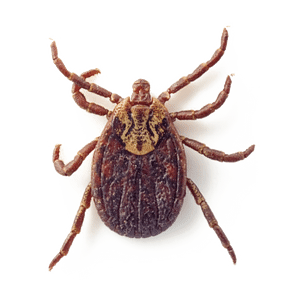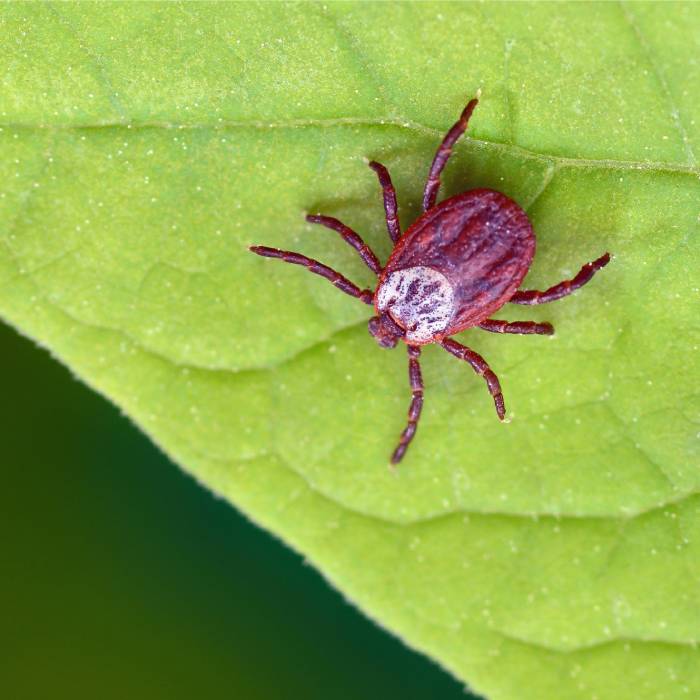
Tick Summary
COMMON NAME: Ticks
SCIENTIFIC NAME: Ixodoidea
SPECIES IN TORONTO: Black Legged, American Dog
TYPE: Arachnida
DIET: Blood
GROUP NAME: Acari
AVERAGE LIFE SPAN: 3 months to 3 years
SIZE: 3-5mm
WEIGHT: 0.0055 grams

COMMON NAME: Ticks
SCIENTIFIC NAME: Ixodoidea
SPECIES IN TORONTO: Black Legged, American Dog
TYPE: Arachnida
DIET: Blood
GROUP NAME: Acari
AVERAGE LIFE SPAN: 3 months to 3 years
SIZE: 3-5mm
WEIGHT: 0.0055 grams
Similar to mosquitoes, ticks are anxious to feast on unsuspecting hosts while they enjoy time in the backyard or enjoying the outdoors, and unfortunately, they are equally as burdensome because of the disease they spread and trouble they cause.
If you spend an afternoon rolling around in the grass and playing with the kids and pets, it might be a wise idea to inspect yourself for ticks afterwards. Unlike mosquitoes that suck your blood and go on their merry way, ticks like to stick around and enjoy their meal for hours, days and even weeks. If you find a tick on your body, we recommend you follow the instructions in this guide provided by the Center for Disease Control (CDC). It’s important to remove it properly and treat the area to avoid exposure to tick-borne diseases such as Lyme Disease and Ehrlichiosis.
Fortunately, if you have a better understanding of the tick life cycle and the different stages it goes through you’ll have the upper hand in keeping them out of your backyard and away from your pets and kids.
Just like mosquitoes, ticks have four distinct stages of life:
But, unlike mosquitoes, ticks start feeding on their hosts at a much younger age. Larva begin attaching themselves to small birds and rodents, but quickly graduate to the nymph stage and move onto humans and larger pets and animals. The female ticks lay their eggs on the ground and once they hatch these “seed ticks” are often found in backyards and playgrounds across Toronto.
Although there are multiple species of ticks found throughout Canada, the two you’ll find most are the Black-Legged ticks (formerly known as the Deer Tick), and the American Dog Tick.

“Compared to the last few years we’ve definitely seen an increase in the number of black-legged ticks that have been found, particularly in eastern Toronto, as well as in the proportion of those black-legged ticks that are positive for the bacteria that causes Lyme disease,” – Associate Medical Officer of Health Dr. Christine Navarro noted.With a warning like this, it’s definitely a good idea to check yourself, your kids and pets often for ticks, particularly if you spend a lot of time outside enjoying your backyard. You can read more about issues ticks in Toronto from CBC Toronto and the City of Toronto.

